In May 2023, we took delivery of a stock INEOS Grenadier Fieldmaster in the UK. We conducted off-road tests and break-in miles before putting it on the boat for Durban, South Africa. By late June, we had the Grenadier in Johannesburg and began lightly modifying the vehicle and provisioning for our trip up Africa. Contrary to many overland builds, we intentionally kept the Grenadier as close to stock as possible, as it is designed from the factory for trips like we were undertaking. It had good ground clearance, appropriate-sized tires, sufficient payload, differential locks, rock sliders, and a hidden winch. For our INEOS Grenadier Build, we only (really) needed to improve our fuel capacity and fabricate a sleeping platform.
For fuel capacity, the safest way to carry petrol without an auxiliary fuel tank (there are currently none available) is on the roof. We selected a petrol Grenadier as the diesel variant requires ULSD, which is only available in eastern and southern Africa. It is not widely available in Sudan and Egypt on the east route and is essentially unavailable on the west coast once into the Democratic Republic of Congo. We installed a Front Runner 3/4 rack with a series of accessories to carry the fuel. This rack also permits full use of the safari windows for game photography and added ventilation. Forty liters of petrol is stored in two 20-liter NATO cans. An additional 36 liters can be stored in rollable fuel bladders from Giant Loop. We have successfully used fuel bladders on significant expeditions, including the long-axis crossing of the Greenland Ice Sheet. When not needed, they can be rolled up and stored inside the vehicle without the volume penalty. The total of 166 liters gives us the 1,000 km (approximate) range we need for remote conditions, and we tested that with success, traveling 800 km in Malawi between fill-ups. We still had a half-tank when we crossed the border into Tanzania.
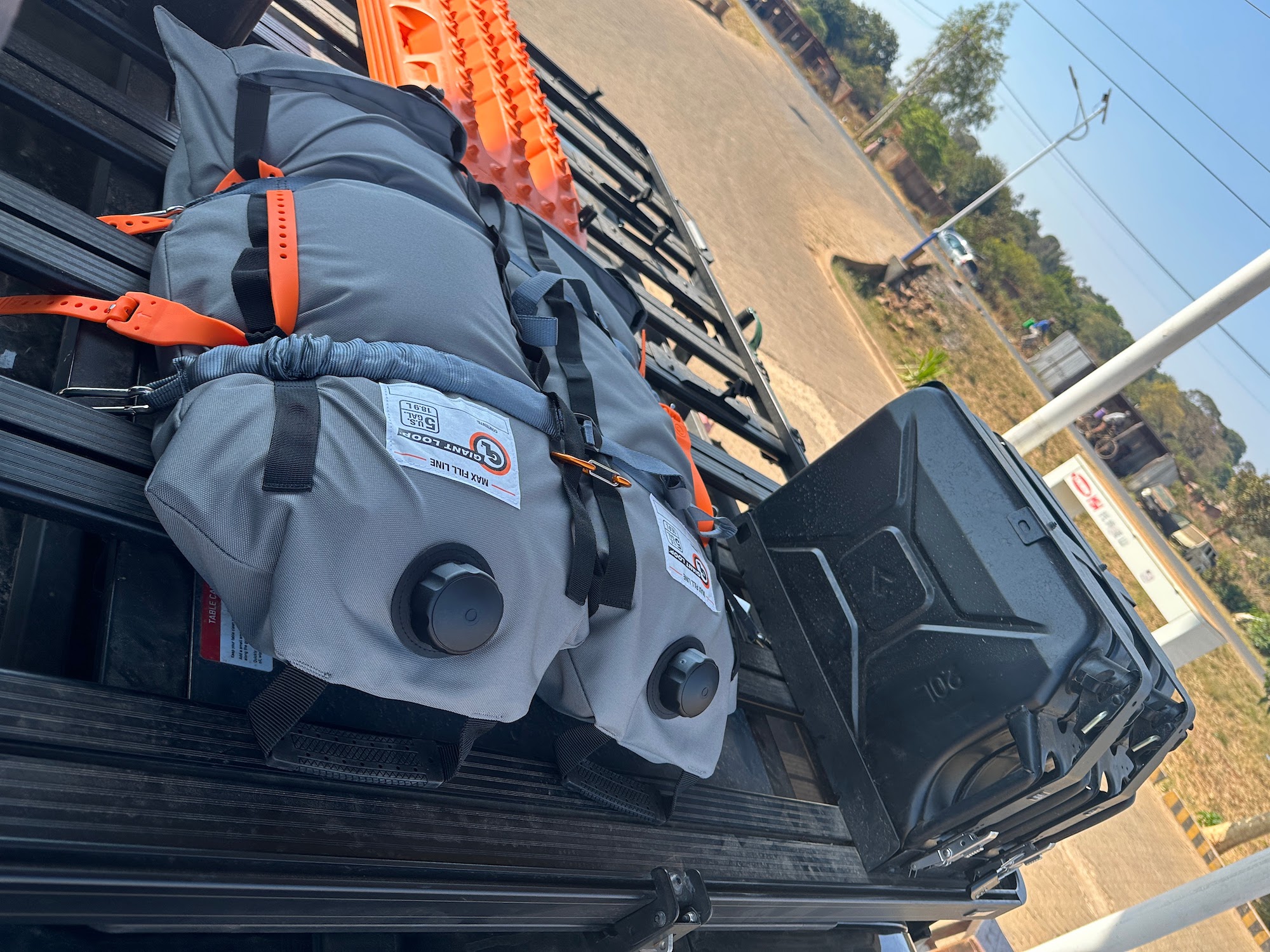
The other fundamental change was installing a rear load deck and sleeping platform inside the Grenadier. We are sleeping in the vehicle while camping, and it also allows for a flat load floor to stow and lash our 25L Dometic fridge and various soft bags. Front Runner engineered the load deck as a one-off (it may be available in the future) from aluminum square tubing and a carpeted wood deck. The frame only weighs 8kg, yet holds the weight of two adults sleeping in the back. It has room underneath to store four Front Runner boxes. We made numerous additional insights and equipment choices for this trip, including navigation from Garmin and power from Redarc. These will all be detailed in an upcoming Overland Journal and Expedition Portal article. In the meantime, we have published a detailed walkaround video of the Grenadier, as we have used it for segment one of our Trans-Africa journey, including driving from Cape Town to Dar es Salaam through South Africa, Mozambique, Malawi, and Tanzania. More updates soon on our Ineos Grenadier build. . .

Our modifications started at Front Runner in Johannesburg, including the fitment of a 3/4 Slimline rack with accessories. We also fabricated and installed a sleeping platform in the back of the wagon.
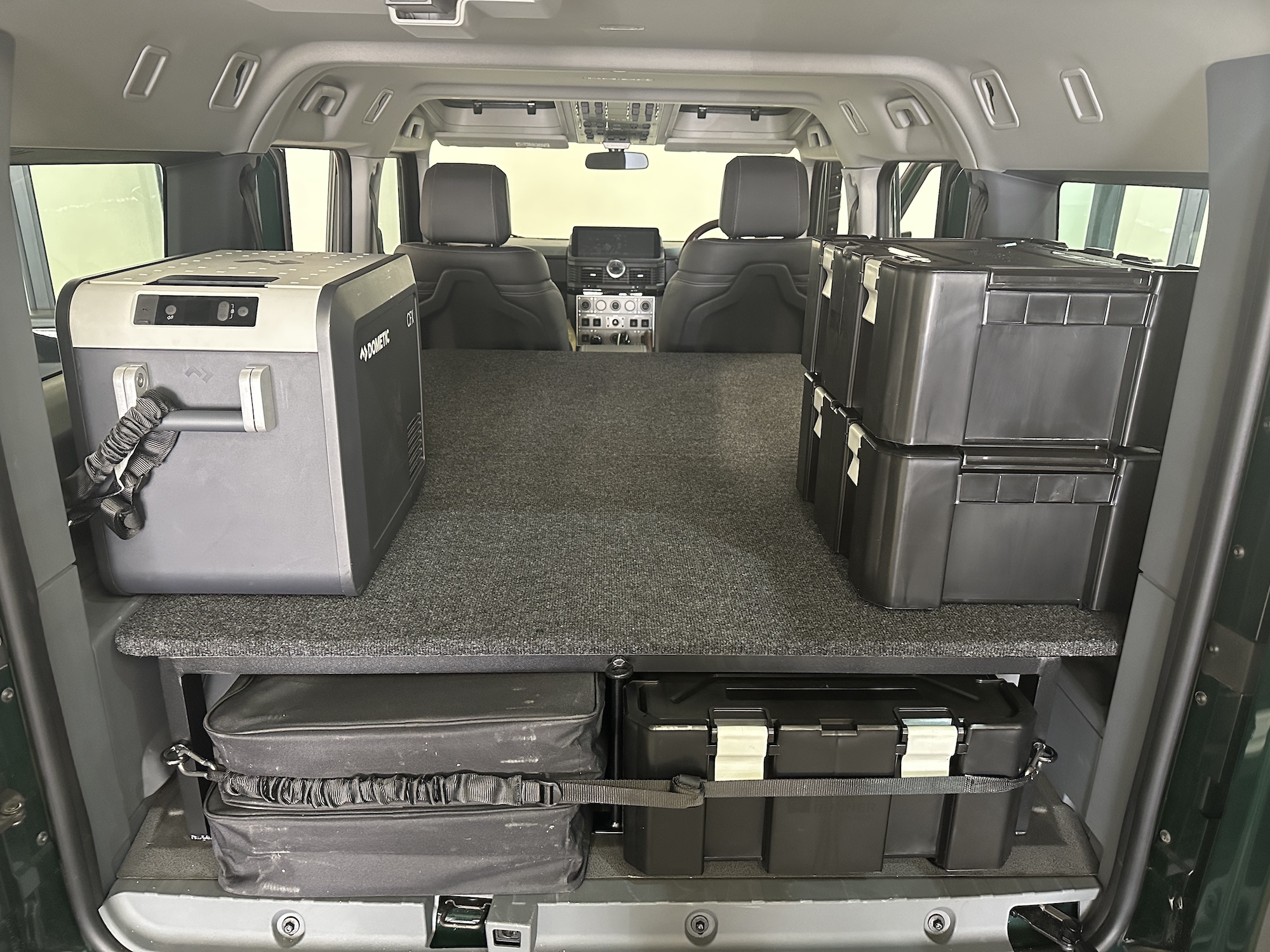
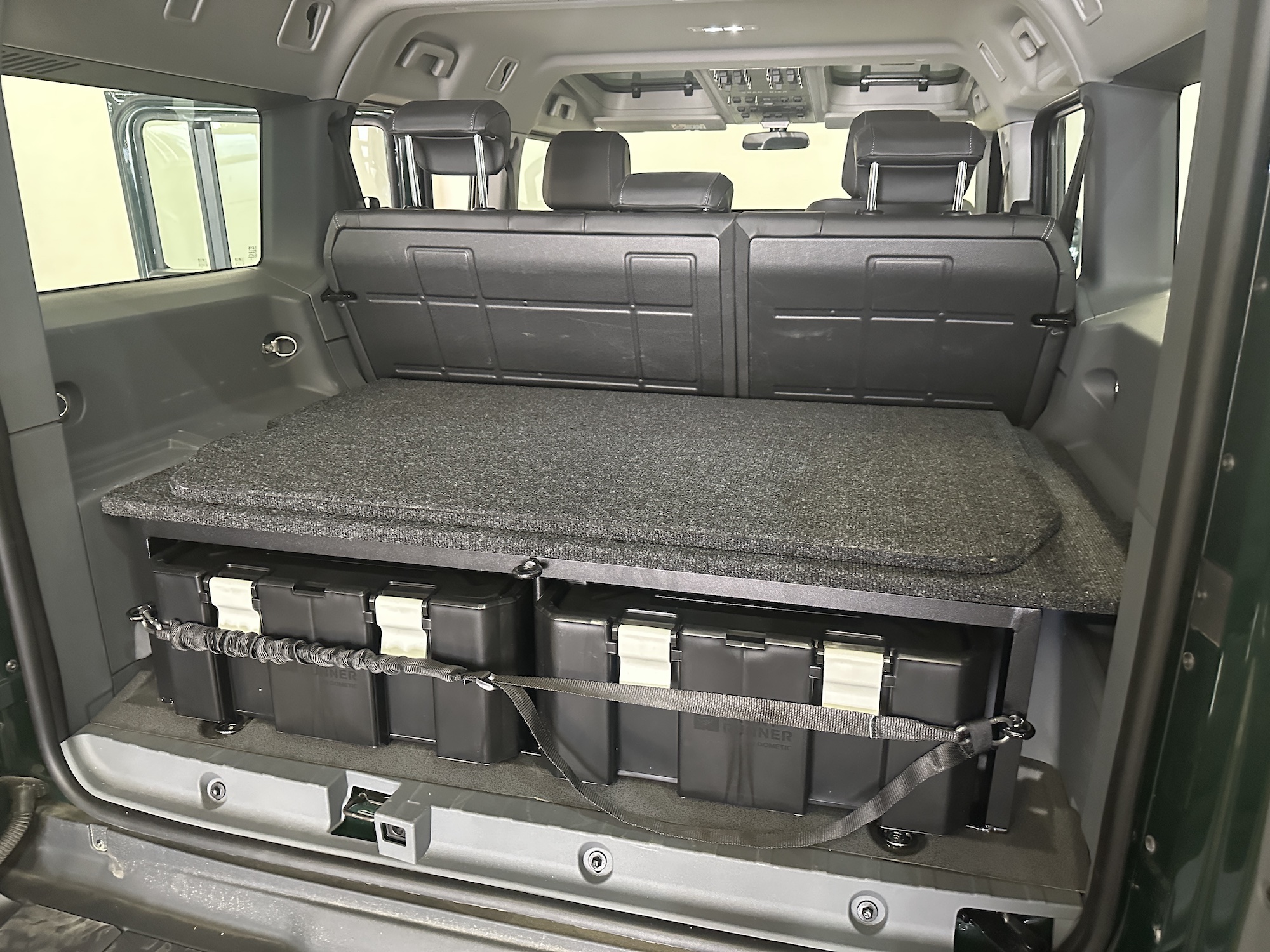
The platform can hinge back on itself and allow full use of the rear seats. It can also become a full-length load floor, with fridge, boxes, and soft luggage.
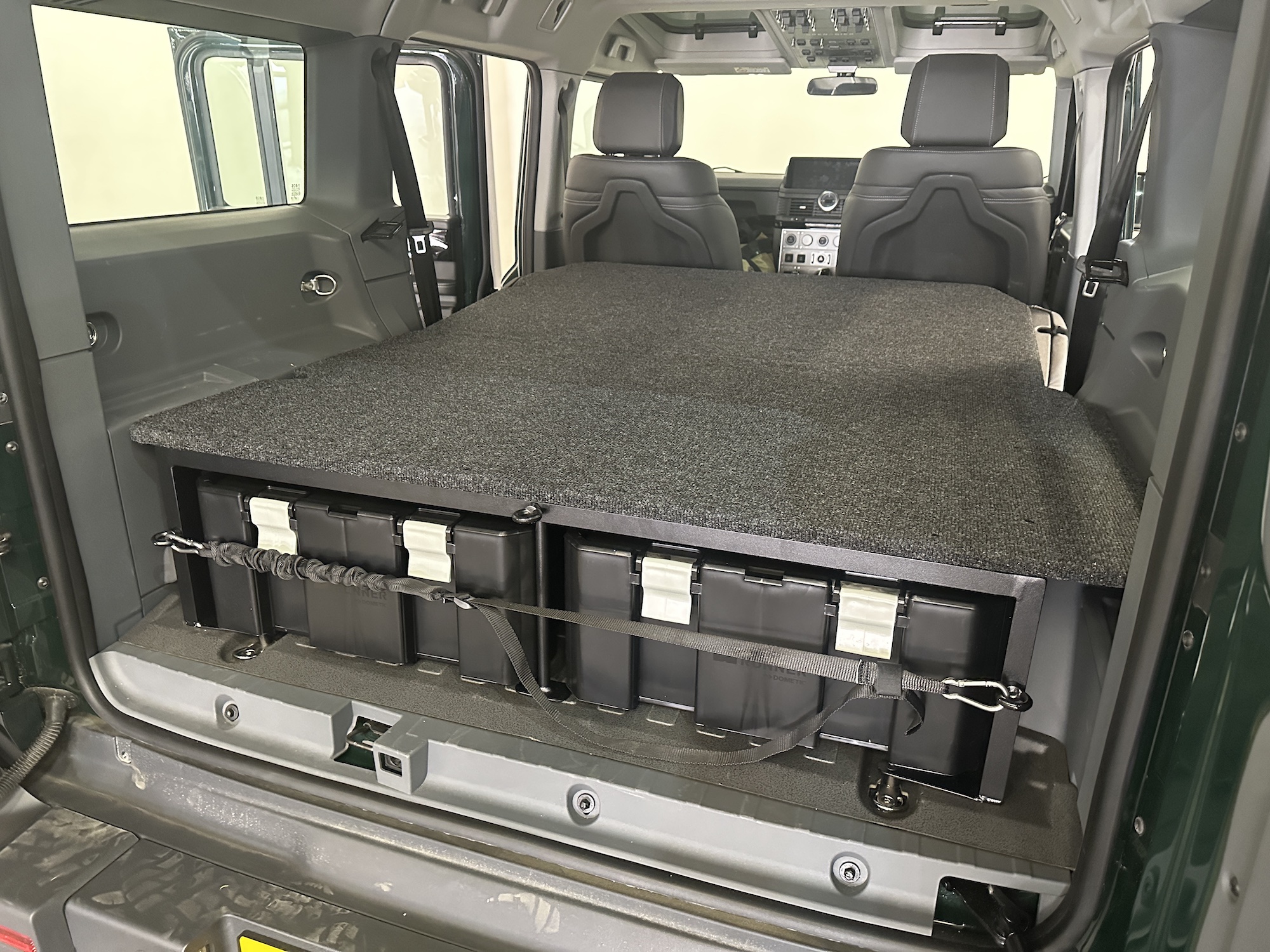
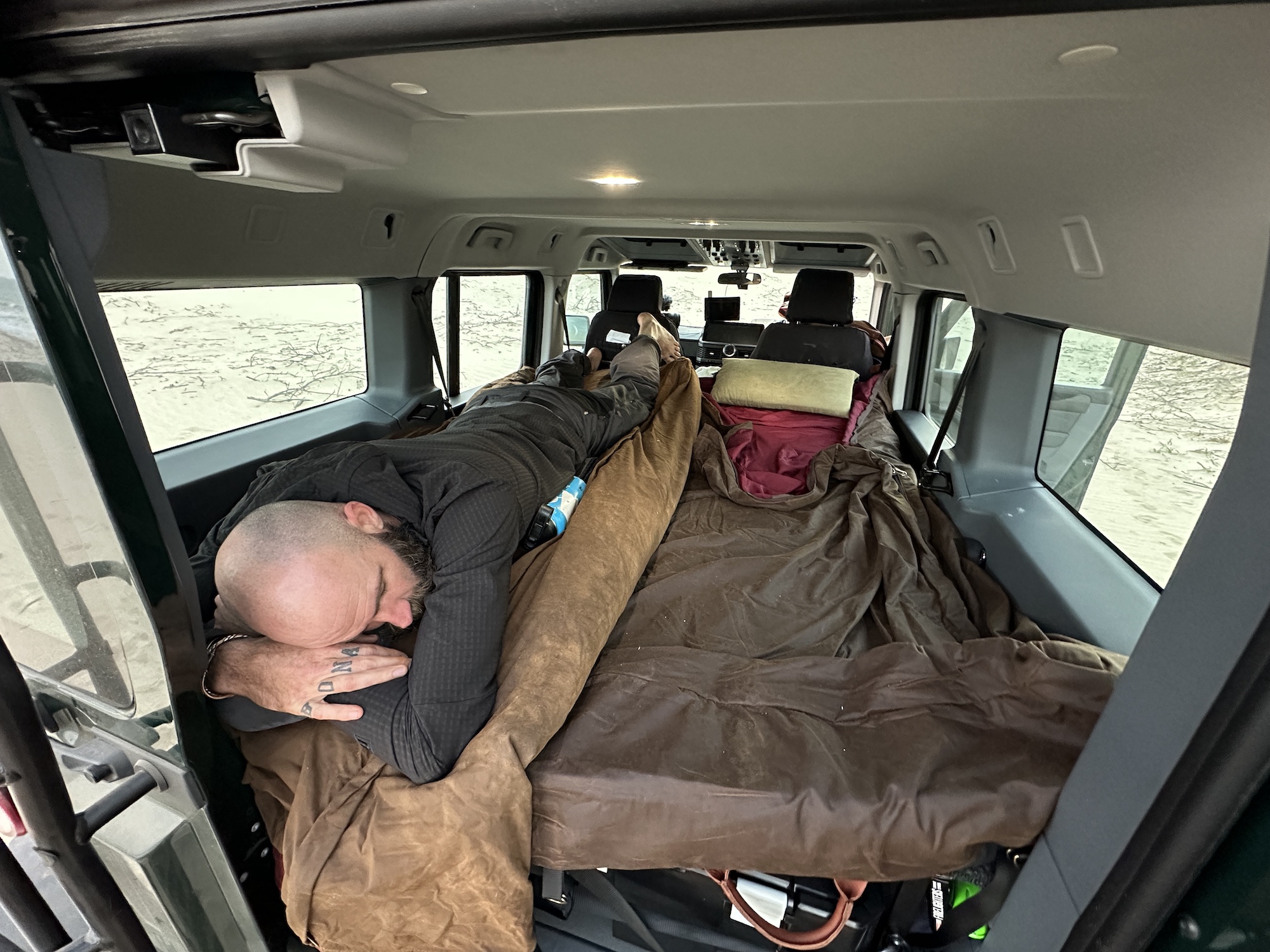
Joe is 6’7″ and can sleep stretched out in the Grenadier. We sleep head to toe which allows for more shoulder room. At 6’1″, I easily fit on the platform with the seat only slid forward.
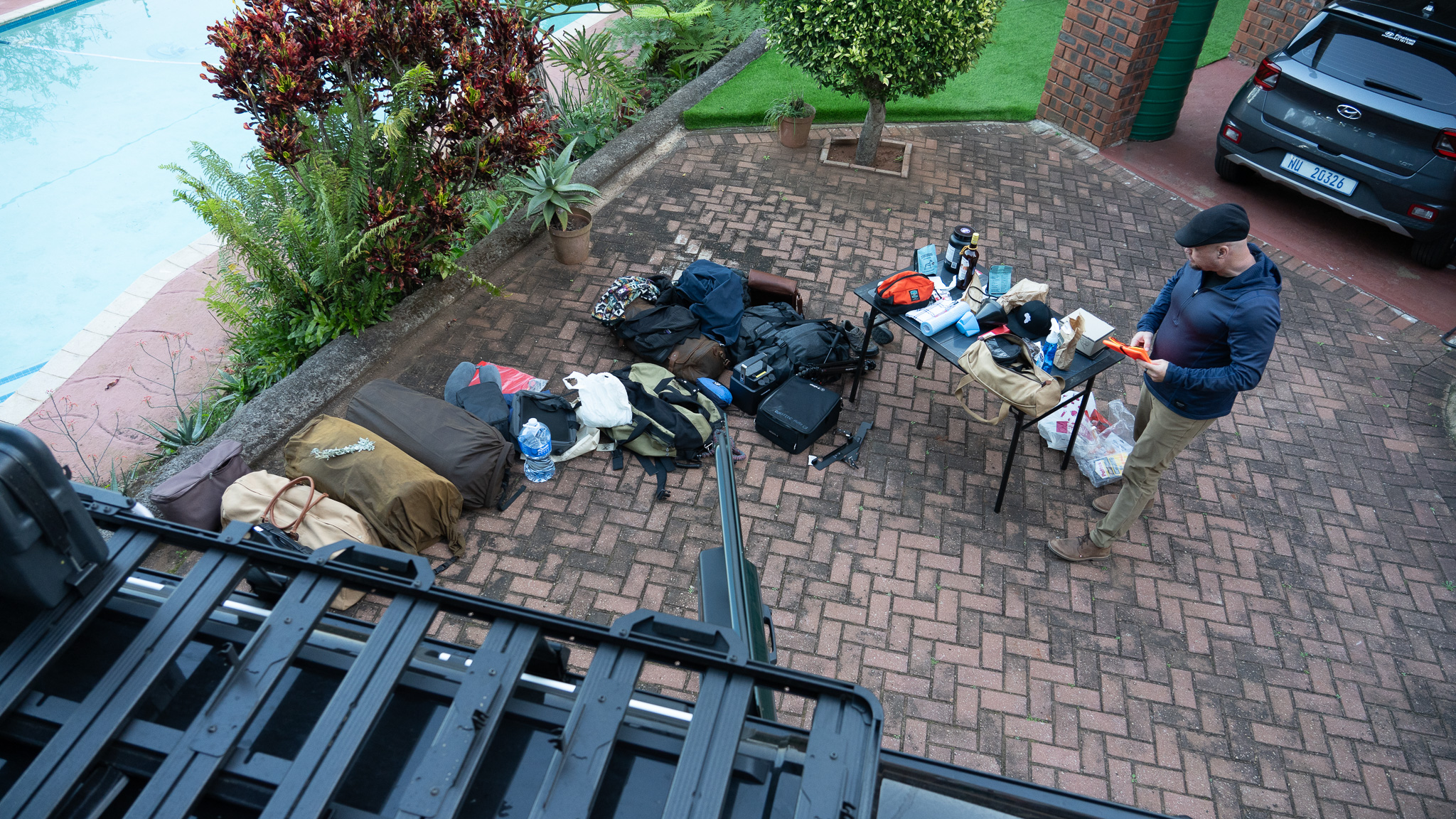
We spent a long afternoon organizing, labeling, and consolidating our equipment in the Grenadier. The heavy tools and recovery equipment is stored in the back seat footwells, far forward and down low.

For navigation, I use a Garmin Tread with Tracks4Africa installed, and supported by an iPad with Gaia GPS and the app version of Tracks4Africa. Google maps can also be a support, but never a primary means of navigation due to the likelihood of uncertain route recommendations.

The Grenadier sits level, even when loaded to just 85%+ of GVM. We have not exceeded GVM even with full fuel, full water, all equipment, and Joe / me in the vehicle.

Early in the trip, we conducted multiple backcountry test routes, including this stunning track into the Cederberg mountains and the Bakkrans lodge, which requires a 14 mile low-range route to the overlook.
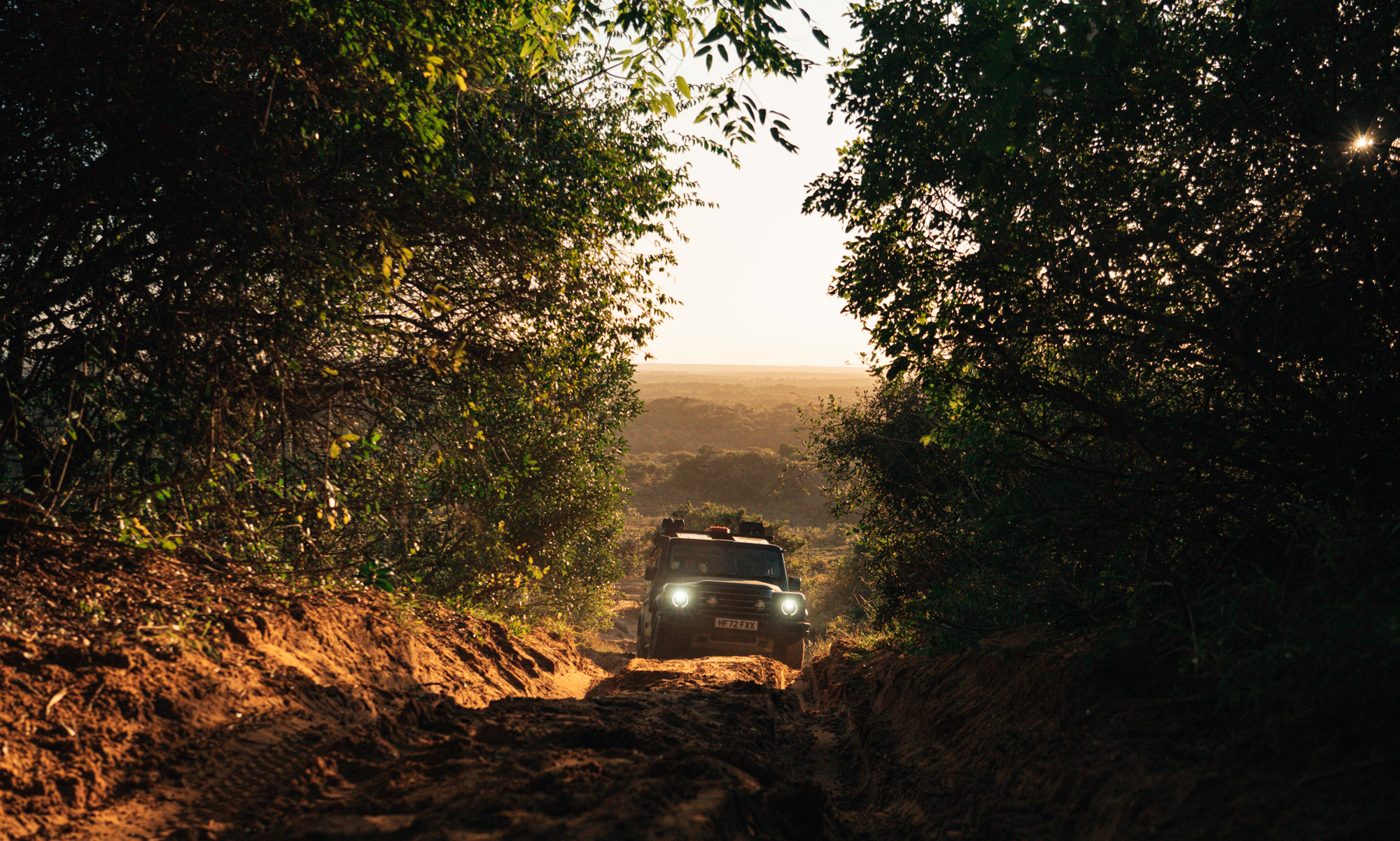
In deep sand, you want the vehicle to be as light as possible. Just because you have the payload, doesn’t mean you should use it. I am happy sleeping in the vehicle, even for months at a time. This keeps the weight low and the systems simple.
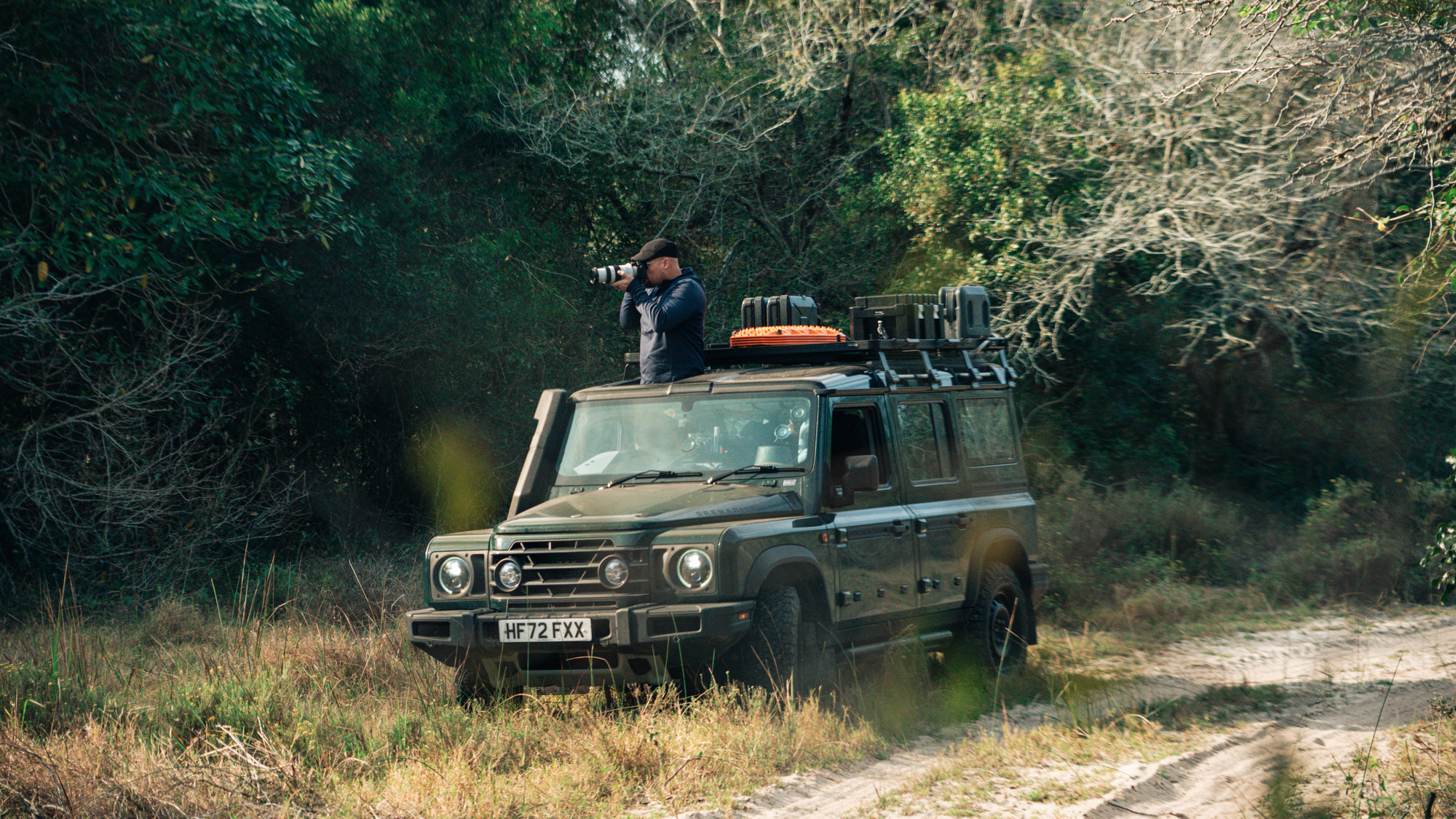
The Front Runner 3/4 rack allows for full use of the safari windows, including during game drives where stepping out of the vehicle is not permitted.
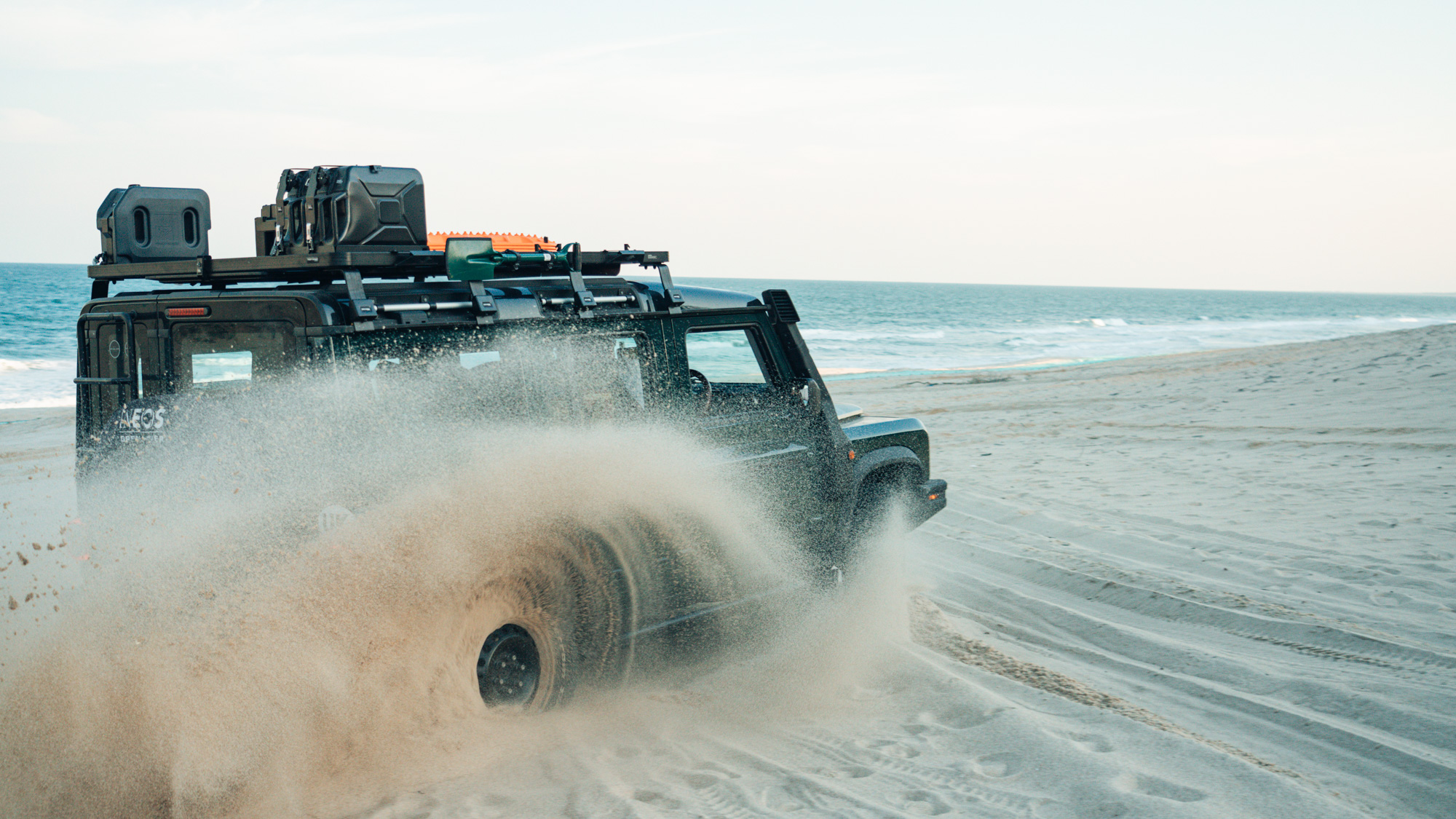
Keep the weight to a minimum, make sure everything is lashed down, address the essentials, and then have fun!
Our No Compromise Clause: We do not accept advertorial content or allow advertising to influence our coverage, and our contributors are guaranteed editorial independence. Overland International may earn a small commission from affiliate links included in this article. We appreciate your support.


